Wikipedia:Wikipedia Signpost/2015-09-09/Featured content
Killed by flying debris

Highlight

This week we open with an occasional piece that highlights a promoted item. The new featured article Paterson Clarence Hughes was nominated by Ian Rose, one of the three current FAC coordinators. Pat Hughes (1917–1940) was an Australian fighter ace of World War II who served with the British Royal Air Force and achieved 17 victories during the Battle of Britain before being killed in action.
The article gives a sense of a colourful and talented young man from isolated inland south-eastern Australia, a part of the continent with an unusual sub-alpine landscape he later described as magnificent and grand. His story is notable for the chasm beween this early, isolated rural life and his death in the sky on the other side of the world from debris flying out of a German bomber he had just shot down at close range—at the age of just 22 years.
The Signpost asked Ian Rose—who was on a long train trip somewhere in the northern hemisphere—whether the juxtaposition of the personal aspects and the mechanics of war has been something that attracts him to military history writing.
| “ | Absolutely. It’s the human element of warfare that attracts me to military biographies. Even when writing unit histories—such as No. 77 Squadron RAAF, or incidents like the Morotai Mutiny—I try to bring out something of the personalities involved. I’d like to share an anecdote about writing the Hughes article, because it might prove useful for other editors. I started working on improving it offline a couple of years ago, but it wasn’t quite coming together. Kristen Alexander’s recent book Australia’s Few and the Battle of Britain provided the spur to finish the article; her publication helped me to resolve a few points where the sources contradicted each other. After I updated the text, referencing Alexander, I noticed she linked the article on her blog; so I emailed her and we discussed some of the subtleties of the Hughes story, leading to further fine-tuning of the article. This was the first time I’d corresponded with the author of a key source, and it was a helpful and an enjoyable experience. Then somewhere along the way I recalled that Caesar Hull—the subject of an article by User:Cliftonian that I’d reviewed at FAC—had died the same day as Hughes during the Battle of Britain; so after Cliftonian had reviewed the Hughes FAC I suggested to him that the two aces could make a good dual TFA—and so it happened! |
” |
Featured-content managers don't often talk publicly about the forums they oversee, so we took the opportunity of asking Ian about how FAC has evolved since he became a coordinator in 2012. The most obvious change, he says, is that we no longer have an FA director, so the former FAC, FAR and TFA delegates have become coordinators. "But the director, Raul, never interfered with delegates’ decisions, and the only role I recall that he reserved for himself was that of selecting new delegates. I’ve always felt that even under him the delegates/coordinators held their positions at the pleasure of the community." Ian says that FAC nominations tend to stay open longer nowadays because there seem to be fewer reviewers around, "and we don’t like to archive noms for lack of feedback—of course that does still happen but then we leave explanations of why we’re archiving nominations more often than when I started."
Is he happy with the thematic balance of featured articles, are there any changes he’d like the community to consider making to the system?
| “ | To be honest I find Wikipedia particularly enjoyable for its more obscure articles, rather than the kind of thing I could find in "conventional" encyclopaedias—but then the stuff I write about is pretty specialised, so perhaps that’s only to be expected! As far as changes to the system go, I'd prefer to see all nominations go through peer or A-class review before FAC, but I know some articles get no feedback at PR, and my suggestion didn’t gain much traction last time I raised it. | ” |
We boldly invited him to discuss some of the more difficult decisions he's faced over the years as coordinator, but Ian was the perfect politician: "Without trying to be cagey, I honestly don’t store that much in my forebrain about past FAC decisions, but try to judge each one on its merits—and I do see a FAC coordinator as a disinterested judge—there to explain the process and to decide when consensus has been reached, but not making direct calls on the quality of articles. That’s the job of reviewers: they’re the jury."
FAC has its political dimensions: nominators work very hard and then become frustrated or hurt when their work is criticised under review. Does he have ways of distancing himself emotionally from the occasional turmoil?
| “ | As a content creator who regularly nominates at FAC myself, I really do sympathise, but as a coordinator you have to be able to distance yourself; otherwise I don’t think you could do the job properly. I’ve occasionally made decisions that have annoyed not just the nominator but some reviewers as well, but I know I’ve never taken them lightly, so I can live with them. | ” |
What are the most rewarding parts of being coordinator, then? "I enjoy working with Graham and Andy, and I like to see the give and take of a good solid review. I think the FAC process is valuable to Wikipedia, so helping to run it is very satisfying." Which leaves us with the question of what Pat Hughes would have made of all this fuss three-quarters of a century later.
Featured articles

Eight featured articles were promoted this week.
- The Battle of Malvern Hill (nominated by Ceradon and Lingzhi) (1862) was the final battle of the Seven Days Battles during the American Civil War. More than 50 thousand soldiers from each side took part, using more than 200 pieces of artillery and three warships.
- The Combat (nominated by Iridescent) Big enough to be used as a makeshift sail on a yacht, this ten foot by thirteen foot canvas by English artist William Etty shows the end of a swordfight between two warriors. The victor is about to decapitate his opponent when a near-naked woman throws herself at him, pleading for the vanquished. This is Etty’s “moral lesson”, the beauty of mercy, which he wished to be painted on the heart of the beholder. The first very large work painted by him, it was regarded during his ascendency in fashionable taste as one of his most powerful paintings. The “right foot of the female” was singled out for critical praise, although one pundit demurred, saying it "looks too much as if painted from a modern foot”.
- Kill 'Em All (nominated by Retrohead and Greg Fasolino) (1983) was the debut studio album by American heavy metal band Metallica. It was regarded as a groundbreaking album for thrash metal because of its precise musicianship, which fused a new style of British heavy-metal riffs with hardcore punk tempos.
- Kurt Vonnegut (nominated by Ceradon and Wehwalt) (1922–2007) was an American writer and humorist most famous for his darkly satirical, best-selling novel Slaughterhouse-Five (1969). His experience as a wartime POW- he was in Dresden deep underground in a meat locker while the city was destroyed in a firestorm- became the central focus of this novel, in which an unreliable narrator describes the stories of Billy Pilgrim, reluctant soldier, time traveller and exhibit in an alien zoo. As in real life, bad chemicals and bad ideas provide the motivation for many of his characters' actions. So it goes.
- Paterson Clarence Hughes (nominated by Ian Rose)
- Samuel J. Randall (nominated by Coemgenus) (1828–1890) was a Democratic member of the US House of Representatives from Pennsylvania.
- The Boat Races 2015 (nominated by The Rambling Man) were this year's side-by-side rowing race between male crews from the Universities of Oxford and Cambridge on the River Thames. For the first time in the history of the event, the men's, women's and both reserves' races were all held on the Tideway.
- United States v. Kagama (nominated by GregJackP) was a US Supreme Court case that confirmed the authority of the US Congress over Indian affairs.
Featured lists

Twelve featured lists were promoted this week.
- 78th Academy Awards (nominated by Birdienest81) – these were held March 5, 2006 in Hollywood.
- Brad Pitt filmography (nominated by FrB.TG) – it's a pretty long list.
- J. Gordon Edwards filmography (nominated by Squeamish Ossifrage) – Edwards (1867–1925) was a Canadian American film director, scenerist, and producer of the silent era.
- Katy Perry videography (nominated by FrB.TG and SNUGGUMS) – Perry, born 1984, has 33 music videos to her name.
- List of accolades received by Aadukalam (nominated by Ssven2) – Aadukalam (English: Arena) is a 2011 Tamil-language drama film directed by Vetrimaaran, which received six awards at the 58th National Film Awards.
- List of accolades received by Enthiran (nominated by Ssven2) – Enthiran was a 2010 Indian Tamil scifi film.
- List of accolades received by Gone Girl (film) (nominated by Cowlibob) Gone Girl (2014) was a psychological thriller film directed by David Fincher and starring Ben Affleck.
- List of international cricket five-wicket hauls at the Riverside Ground (nominated by The Rambling Man) – a five-wicket haul is regarded as a notable achievement.
- List of international cricket five-wicket hauls by Stuart Broad (nominated by The Rambling Man) – Broad, born 1986, is a talented and camera-favourite English cricketer.
- List of international goals scored by Wayne Rooney (nominated by The Rambling Man) – Rooney, born 1985, is a notable English association footballer.
- List of tied one-day internationals (nominated by Vensatry) – ODIs have been a high-profile form of cricket since they were developed in 1971.
- NWA World Middleweight Championship (nominated by MPJ-DK) – it's wrestling and it happened between 1939 and 2010.
Featured pictures
Twenty-eight featured pictures were promoted this week.
- Aerial view of the Goetheanum, the world centre for the anthroposophical movement (created by Taxiarchos228; nominated by Alborzagros)
- Portrait of Antoine-Laurent Lavoisier and his wife by David (created by Jacques-Louis David; nominated by Crisco 1492)
- Hurricane Erika (2003) (created by NASA, MODIS/ LANCE, HDF; nominated by Crisco 1492)
- Christoph Willibald Gluck by Duplessis (created by Joseph Siffred Duplessis; nominated by Adam Cuerden)
- The frame of a new house under construction in Borneo (created by Cccefalon; nominated by Crisco 1492)
- A map from Stielers Handatlas, first published in 1816 (created by Adolf Stieler; nominated by Alborzagros)




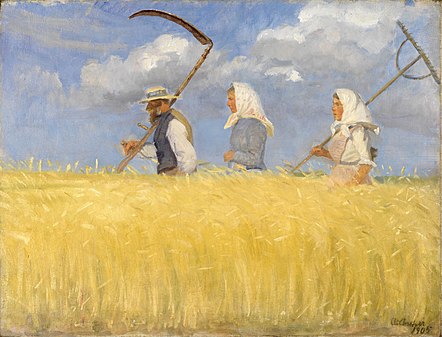



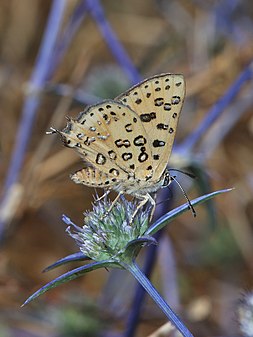


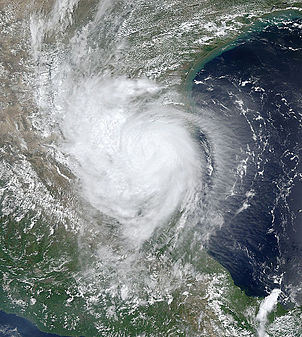

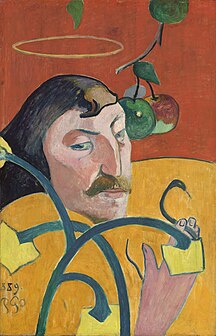



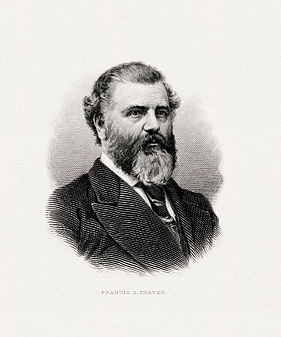


Discuss this story
Nice job, Tony. - Dank (push to talk) 21:33, 11 September 2015 (UTC)[reply]
There is nothing written about Paterson Clarence Hughes and the text for the FLs are pretty weak too. Armbrust The Homunculus 18:05, 16 September 2015 (UTC)[reply]
Great interview! Ed [talk] [majestic titan] 20:09, 16 September 2015 (UTC)[reply]